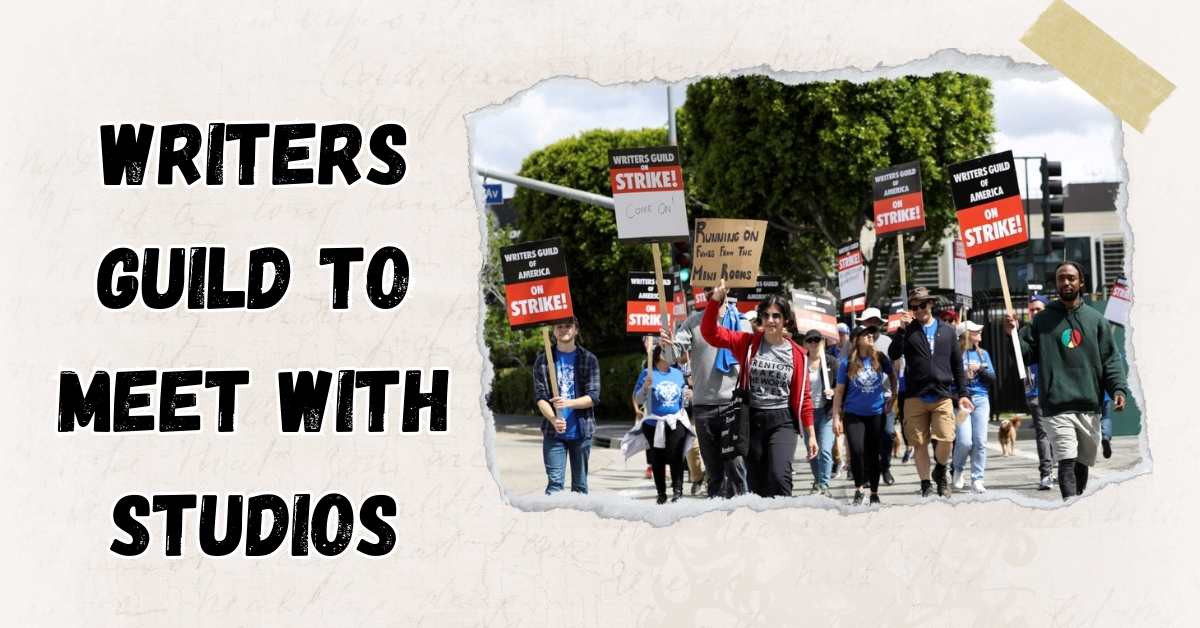The Writers Guild is going to meet with major studios to talk about important issues and work together. This is a big deal for the entertainment business.
As the collective bargaining agreement nears its end, this meeting is the most important thing that can happen to shape the future of screenwriters, producers, and the entertainment industry as a whole.
Both sides want to find a middle ground, so the talks should cover things like fair pay, working conditions, and artistic rights. The result of these talks will have a big effect on the storytelling community and the quality of the stories people will see. As the industry eagerly waits for an answer, all eyes are on the upcoming talks.
Writers Guild to Meet With Studios
According to the Writers Guild of America, streamers and studios have asked to meet on August 4. The WGA negotiating committee announced in a statement to members on Tuesday that “the AMPTP, through Carol Lombardini, reached out to the WGA today and requested a meeting this Friday to discuss negotiations.”
SAG-AFTRA shared a post on Twitter:
If we must strike, we deserve SAFE places to picket. #sagaftramembers, we’re fighting for this right TOMORROW, 8/4, 9-12 PT at Universal Studios! #SAGAFTRAstrong #treegate
👉 Warner Bros. and Disney #SAGAFTRAstrike pickets will be CLOSED. pic.twitter.com/OEVjgLHg9z
— SAG-AFTRA (@sagaftra) August 3, 2023
After the meeting, we’ll get in touch with you again and provide you with further details. Be cautious of rumors, as we’ve said before. You will be informed immediately by us whenever there is significant news to report.
The Alliance of Motion Picture and Television Producers, the organization that bargains on behalf of major entertainment firms, and members of the WGA did not meet on Friday, but the location of the meeting was not made public.
“We remain committed to finding a path to mutually beneficial deals with both unions,” an AMPTP spokeswoman said in a statement, alluding to both the WGA and SAG-AFTRA, which has also gone on strike.
The first step in what might be a protracted process to bring the two sides together would be if they met. After contract negotiations fell through in May due to a number of factors, the WGA has been on strike for almost 14 weeks.
According to the Guild, the producers stood their ground when it came to implementing viewership-based residuals, policing artificial intelligence, and creating minimum workforce levels.
Here you can also check our recent articles:
- Are Douglas Brinkley and David Brinkley Related? The Surprising Story Revealed
- Exploring the Educational Potential of Apple Vision Pro
- Ultimate Guide to Improve Student Engagement With AI
According to a document the union distributed in early May, the two parties were unable to reach an understanding on matters like guaranteeing a second “step” in screenwriters’ contracts and enabling weekly minimums for WGA members in postproduction.
The minimal staffing suggestion was referred to by the AMPTP as “a hiring quota that is incompatible with the creative nature of our industry,” while the A.I. issue “requires a lot more discussion, which we’ve committed to doing.”
Additionally, it refuted the WGA’s assertions that Hollywood studios have “created a gig economy inside a union workforce.” After the performers’ union, SAG-AFTRA’s three-year contract expired and the two parties were unable to agree on a new agreement, the writers’ negotiations broke off, and SAG-AFTRA declared its own strike: A.I. and a plan to give streaming project casts a share of subscriber money were the main points of contention.
SAG-AFTRA’s national executive director and top negotiator Duncan Crabtree-Ireland stated in a statement on Wednesday that “we are ready, willing, and able to return to the table at any time.”
“We have not heard from the AMPTP since they informed us on July 12 that they would not be willing to continue talks for quite some [time],” Crabtree-Ireland continued.
The only way to terminate a strike is for the parties to resume negotiations, and we implore them to do so as quickly as possible so that we can put the industry back to work.
The Directors Guild of America ratified a contract with employers on June 23. In the DGA negotiations, the union brought up a few issues that also affect the WGA: The most recent labor agreement places various limitations on artificial intelligence (AI), for example, and creates a new foreign residuals calculation based on a platform’s number of overseas customers.
